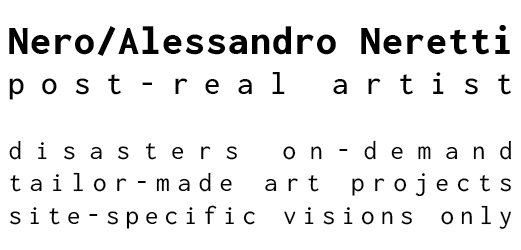ATLANTE
Selvatico 19
Museo San Rocco
Fusignano/ITALY
2019

wild atlas between life and death (a special knowledge discount), 2019 | galvanized iron, mixed media on paper, plaster, glazed earthenware, object trouvé, recycled iron, aluminum, wood branches | 263 x 732 x 260 cm
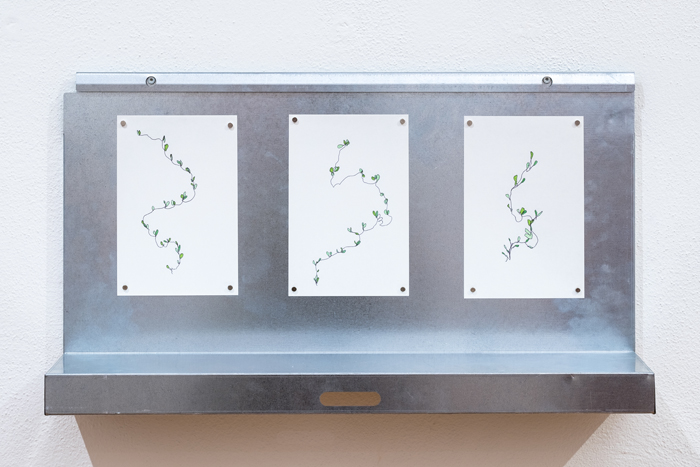
detail from: wild atlas between life and death (a special knowledge discount), 2019
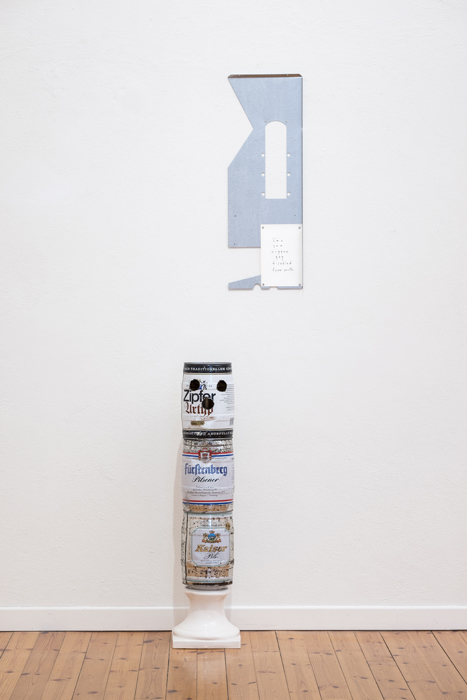
detail from: wild atlas between life and death (a special knowledge discount), 2019
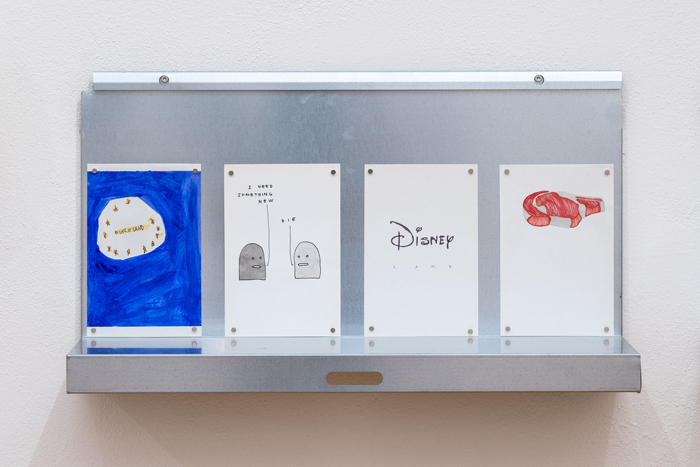
detail from: wild atlas between life and death (a special knowledge discount), 2019
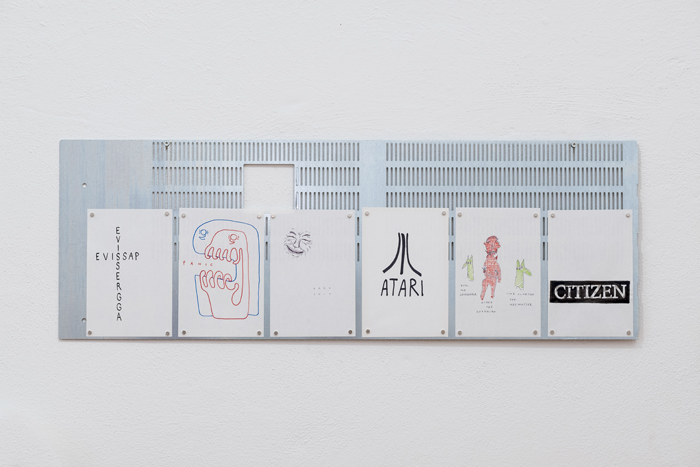
detail from: wild atlas between life and death (a special knowledge discount), 2019
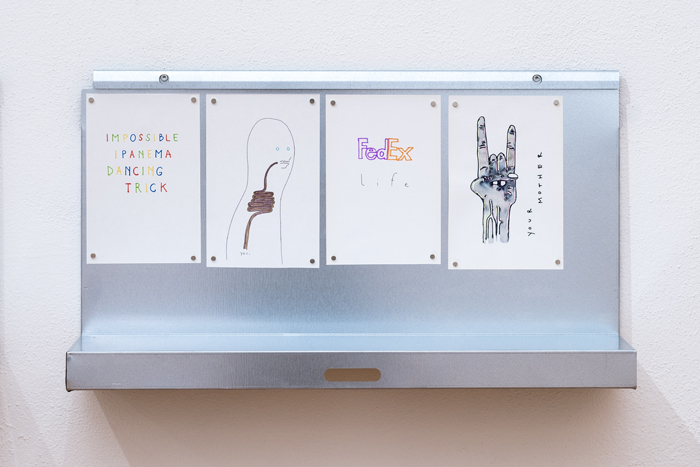
detail from: wild atlas between life and death (a special knowledge discount), 2019

detail from: wild atlas between life and death (a special knowledge discount), 2019
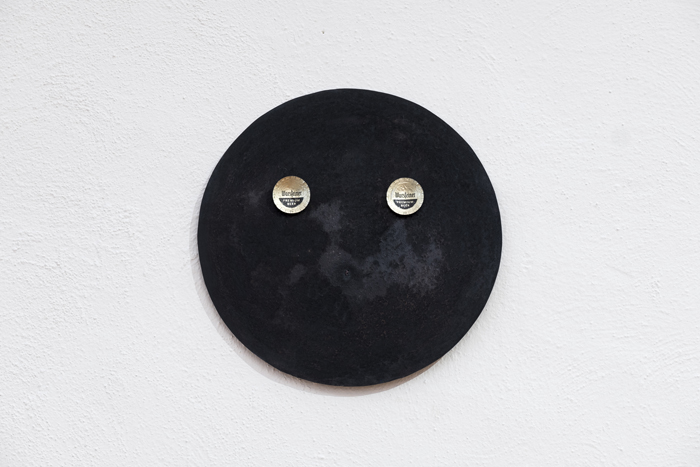
detail from: wild atlas between life and death (a special knowledge discount), 2019
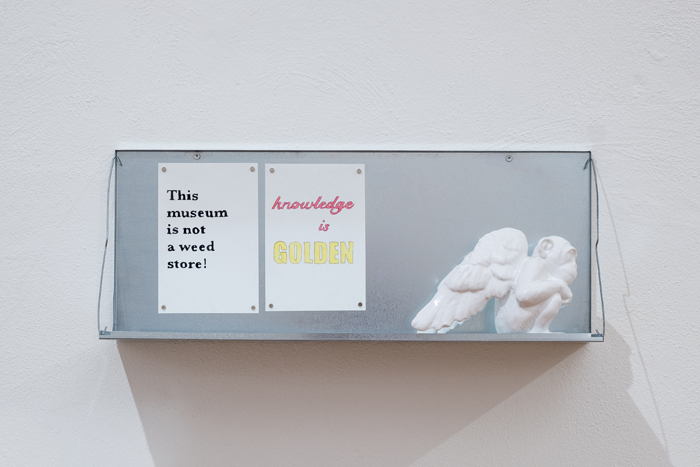
detail from: wild atlas between life and death (a special knowledge discount), 2019

detail from: wild atlas between life and death (a special knowledge discount), 2019
WILD ATLAS BETWEEN LIFE AND DEATH (A SPECIAL KNOWLEDGE DISCOUNT)
Source www.vocabulary.com
WILD
Something that’s wild lives in nature and isn’t tamed. Your pet poodle isn’t wild, but the groundhog that lives under your garden shed is wild.
An animal or plant in its native habitat is wild, like a wild dingo or a wild strawberry. An untamed bit of nature, like your overgrown back yard, or a stormy ocean, is also wild. If a person is wild, he might be unrestrained, crazy, or even enthusiastic — like someone who’s wild about cabaret music. The term “to run wild” means to grow unrestrained, undisciplined, like a wild animal or an imagination that isn’t held back by rules.
ATLAS
Can’t remember which countries border Uzbekistan? Consult an atlas, a book of maps, and you’ll find the information you need.
An atlas gets its name from the Greek god Atlas, who, according to myth, was forced to bear the weight of the heavens on his shoulders. You might feel like Atlas if you have to carry one of these books around. Atlases are usually large, oversized books that contain maps, diagrams, and information such as population figures. Traditionally, atlas refers specifically to a bound book of maps rather than to a folding map, a globe, or an online database.
BETWEEN
To be between two things is to be in the middle. In a picture, if you are between your sisters, one is on your left and the other is on your right.
The preposition between comes from the Old English word betweonum, meaning “among,” or “by turns.” If you are between jobs, you are not at your old job anymore and you haven’t yet found a new one — you are in the middle of your transition to something new, just as if you live between two feuding neighbors, you might feel caught in the middle. If you are stuck between a rock and a hard place, you are in some kind of trouble.
LIFE
Plants, animals, insects, bacteria, viruses, algae, mold and humans all have life: they grow, eat, make waste, change, and reproduce. Rocks and minerals, not doing any of these, do not have life.
Your life is the time from your birth to your death — you can see this in its origins: “to remain, persevere, continue, live.” Life is everything that happens: When people say, “That’s life,” they mean all the events and tendencies, the human condition itself. You might hear about “city life” — or “country life” for that matter — meaning the habits and expectations of inhabitants of a particular place.
DEATH
Death is the end of life. Whether it’s only an instant or it takes years, death is always permanent, no matter what vampire movies try to tell you.
Death has many meanings and uses, but it always means the end of something. It can be a single moment like the death of a fish eaten by an alligator, a slow process like the death of cassette tapes as compact discs became popular, or an ongoing state like the death of an ancient language. Death isn’t always bad: the death of a human is depressing, but the death of a vegetable is dinner.
SPECIAL
Special means “better than ordinary.” Like the self-portrait you lovingly painted as a surprise for your sweetie’s birthday, something special is distinct, and surpasses the norm.
Something special is looked upon with affection, surpasses expectations, or has a particular role. It can also be a featured attraction or limited-run occurrence — like when there’s a special on television or a special on cheese at the store. Ray Charles said, “Love is a special word, and I use it only when I mean it. You say the word too much and it becomes cheap.” Take this sweet crooner’s advice and don’t wear out special sentiments.
KNOWLEDGE
Why do you go to school? For knowledge, of course. To have knowledge means to know or be aware of things.
Knowledge is understanding gained through learning or experience. You read a recipe to gain knowledge about baking rhubarb pie. When it burns in the oven, experience gives you the knowledge that you need to stop doing three things at once. Fields like biology, math, art, medicine, and others have huge bodies of knowledge. Knowledge can mean information and also deeper understanding. You can use this word as a disclaimer too, as in “To my knowledge, my sister walked the dog.”
DISCOUNT
The noun discount refers to an amount or percentage deducted from the normal selling price of something. If you wait until after the holiday, you can often buy goods at a steep discount — just make sure you need all that stuff.
The noun discount means a reduction in price of a good or service. You can ask the manager for a discount if the item is damaged. As a verb, discount means to reduce the price. The manager can discount the item for you. The verb discount also means to disregard, underestimate, or dismiss. If you are a teenager, people will often discount your opinion — but you should keep expressing it because eventually people will listen!
